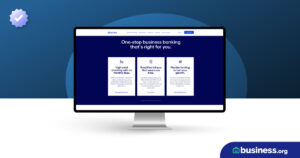💸 See if your business qualifies for a tax credit worth up to $26k per employee. 📞 Call Now: 855-979-9597
8 Tips to Survive a Recession, and Come Out of It Stronger
We are committed to sharing unbiased reviews. Some of the links on our site are from our partners who compensate us. Read our editorial guidelines and advertising disclosure.
While these global forces are out of your hands, there are steps you can take to not only weather the storm, but to come out stronger. Here are eight inexpensive and easy ways your business can prepare for a recession. Let’s get to work!
1. Focus on your cash flow
Do you really understand how much cash is flowing in and out of your business? If you don’t, it’s critical to build a reliable cash flow statement. First, track your daily cash flow. That’s right, it’s vital to know how much cash is coming in, and how much is going out, every single day. This will help you create data-driven forecasts.
Next, think about your future. What do the next three, six, and 12 months look like? Chart out your business finances, considering normal fluctuations and seasonal trends. Once you have solid trends in place, you can accurately predict your cash flow and develop a plan to cut costs and save for an economic downturn.
2. Cut expenses wherever possible
Soaring costs are hitting small businesses hard. In fact, 71% of small business owners saw a 20% cost increase in 2022. Yikes! Cutting expenses wherever possible is crucial to easing the pain.Start by examining your costs closely. Take a granular look at where you’re spending money and determine whether those costs align with your business’ goals. If you’re paying for goods or resources that you aren’t using, cut them. If you’re paying for something that doesn’t align with your long-term strategy, cut it. Even little cuts will add up to big savings.
Next examine the areas you can’t eliminate. Is there anything you can do to reduce those costs? If you have a good relationship with your vendors, would a quick call lower a price? Have you shopped around to see if you can get the same supply at a lower rate? Think critically about all of your expenses to see if there’s a way to lower your costs.
By signing up I agree to the Terms of Use and Privacy Policy.
3. Protect your revenue
Take a hard look at your revenue streams and profit margins. Where is your business strong? Where is it weak? A recession is a unique opportunity for your small business to focus on what it gets right — and to consider pausing efforts that don’t make much financial sense. It’s more important than ever to prioritize your most profitable products and services.
Beyond protecting current revenue streams, examine your business to see if there’s a new opportunity to diversify further. Can you lease out extra space in your office? Can you easily tweak a current product to appeal to a new customer? It’s time to get creative.
4. Watch your receivables
A recession impacts everyone, including your customers. Unfortunately, this means it’s more important than ever to watch your receivables. Are your customers paying on time? Are they paying in full? If you have a client who’s frequently delinquent, you’ll need to make some tough decisions about cutting ties.
It’s also an opportunity for you to examine your sales invoice. Read through it closely to make sure your payment expectations are clear. And if you haven’t already implemented billing and invoicing software, it’s time to consider it. By automating the payment process, you’ll have one less thing to worry about.
5. Be ready to take out a loan
If your business needed to take out a loan, would you be ready? There are key steps you can take to ensure your business is “lendable” when the time comes to get a loan. Steps like building your credit score, making sure your paperwork is in order, and knowing what type of loan is best for your needs will help you seal the deal.
And when the time comes to start loan shopping, we recommend starting with Lendio, a marketplace that lets you explore several lenders with one easy application. We also like these small business lenders.
6. Explore alternative financing options
A loan not right for you? There are other financial avenues available to businesses that don’t qualify for a loan or those who just don’t want one.
Business credit cards can be a great way to add financial flexibility to keep operations running smoothly. And of course you can use your credit card as little or as much as you need. You can also consider taking out a line of credit to alleviate cash flow difficulties.
If you really fall on hard times, look into disaster relief. There are several government-issued programs that help bolster small businesses when times are tough — especially during a recession. Your local SBA office is a good place to start.
7. Don’t stop marketing
We all know that marketing budgets are usually the first to go when times are tight. But this move doesn’t always make sense. If you want to stay top of mind with your current customers and attract prospects, it’s important to maintain consistent, strategic marketing efforts.
Before cutting your marketing budget, take a close look at your marketing strategy. Have you targeted the right audience? Are you sending the right message? Are you using data to examine your marketing plans and create future initiatives?
Marketing during a recession can drive your small business ahead of the competition. Don’t stop without a thorough analysis and plan.
8. Keep your customers happy
At the end of the day, your customers keep your doors open. Keep them happy and they’ll keep coming back for more — and maybe even refer a friend or two. It’s especially important to have a customer-centric vision during a recession.
Launching a simple online feedback survey is a great way to show customers you care. Read each response carefully and don’t ignore negative feedback. We also suggest starting a rewards program, offering free shipping, or creating member-only discounts.
Keeping your customers happy is crucial to reducing customer churn and attracting prospects. Their happiness is key to your success.

With plans starting at $15 a month, FreshBooks is well-suited for freelancers, solopreneurs, and small-business owners alike.
- Track time and expenses
- Create custom invoices
- Accept online payments
The takeaway
You can’t control the global economy, but there are steps you can take to keep your business running profitably. By focusing on what your business can do instead of dwelling on what it can’t do, you might just come out of the recession stronger than you entered it.
Related reading
Disclaimer
At Business.org, our research is meant to offer general product and service recommendations. We don't guarantee that our suggestions will work best for each individual or business, so consider your unique needs when choosing products and services.





